In the equestrian world, the bond between a horse and its owner is one of profound understanding and mutual respect. As horse lovers, we often ponder over the emotional state of our equine companions. Something almost existential, perhaps, but is the noble steed merely content, or is it truly happy?
Recognising the signs of genuine happiness in your horse is crucial for ensuring their well-being and can enhance the connection you share. With that in mind, let’s trot through the indicators that your horse is not just faring well but is basking in equine bliss.
A Picture Of Health
First and foremost, a happy horse is a healthy one. Regular check-ups by a vet, a balanced diet, and proper grooming are the foundations of a horse’s well-being. A glossy coat, clear, bright eyes, and a body in good condition are the hallmarks of health. If your horse is thriving physically, chances are it’s on the right track to happiness.
The Language Of Behaviour
Horses communicate their emotions through behaviour. A contented horse will exhibit a calm and steady demeanour. It will be keen to engage with you, showing curiosity rather than indifference. Look for a relaxed posture, with the head held at a natural, low position, and ears that are attentive but not pinned back. These are the signs that your horse feels safe and comfortable in its environment.
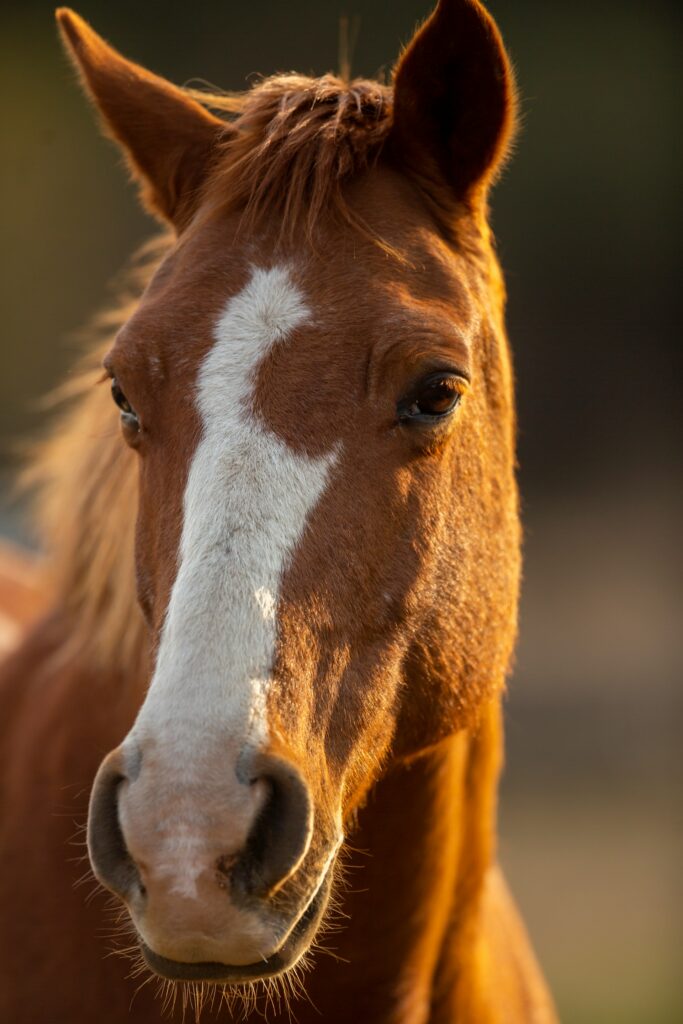
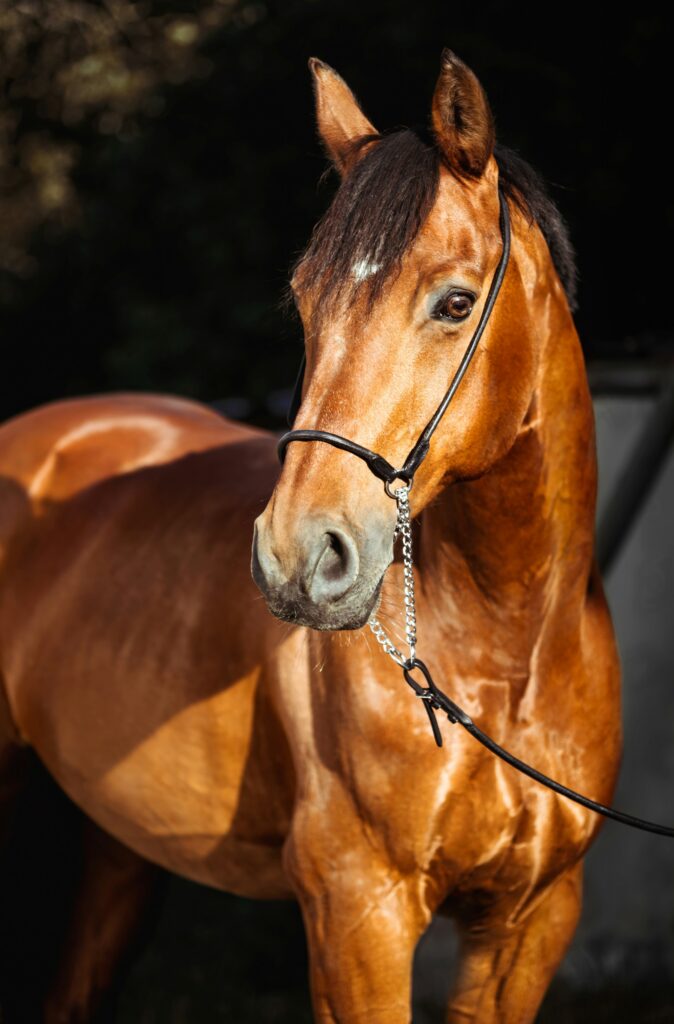
The Joy Of Work
A happy horse is usually a willing one, especially when it comes to work. Whether it’s during training sessions or while out for a ride, a happy horse will respond to your cues with enthusiasm. It’s important to note that the use of tack should never cause discomfort. A well-fitted bridle that allows your horse to understand your communications without pain is essential for a happy riding experience.
The Freedom Of Movement
Observing your horse in the field can be very revealing. Horses that feel joy often partake in exuberant activities such as galloping, playing, and rolling. These bursts of energy are not only a good sign of physical health but also of a positive emotional state.
Read: How to protect your horse from insects this (and every) summer
The Social Butterfly
Horses are inherently social creatures, and their interactions with fellow horses can be very telling. A happy horse is often seen grooming or being groomed by its stablemates, a behaviour known as ‘allogrooming’. This not only strengthens social bonds but is also a sign that your horse is well-integrated and content within its herd.

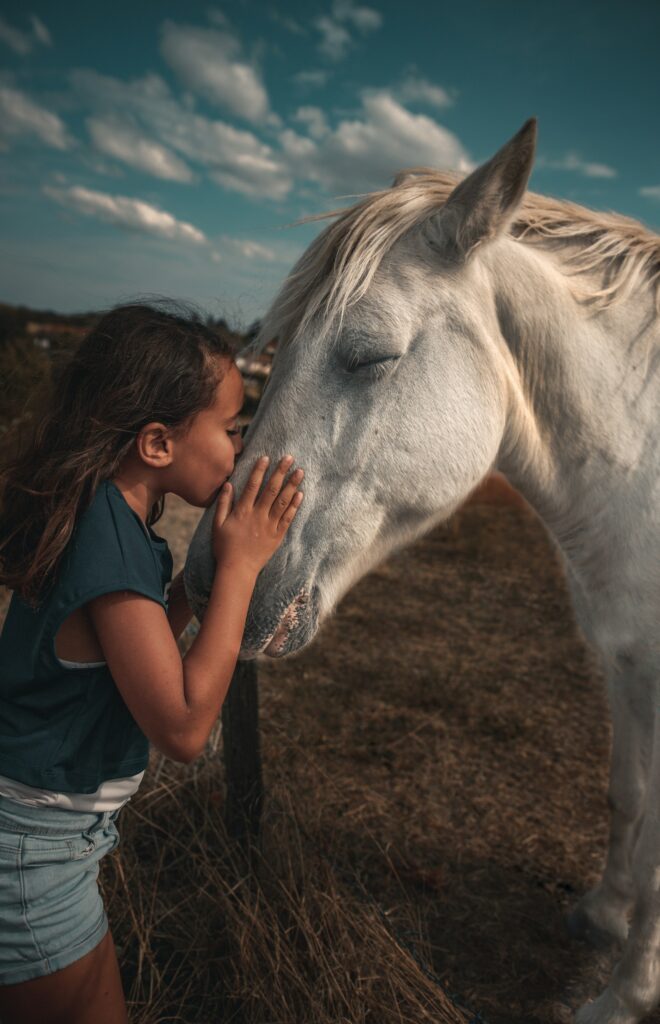
The Power Of Rest
Rest is as important as activity. A happy horse will lie down to rest and achieve REM sleep. This is a vulnerable position for a horse, so doing this indicates they feel secure in their environment.
The Subtlety Of Sounds
The sounds your horse makes can also be indicative of its mood. A soft nicker when you approach or a contented sigh while you’re grooming are auditory signs that your horse is in high spirits.
The Tell-Tale Signs Of Stress
Conversely, it’s important to recognise the signs of stress or unhappiness in your horse. These can include changes in appetite, resistance to being bridled or saddled, a tendency to isolate from the herd, or displaying stereotypic behaviours such as cribbing or weaving. Addressing these issues promptly with the help of an equine behaviourist or vet can help restore your horse’s happiness.
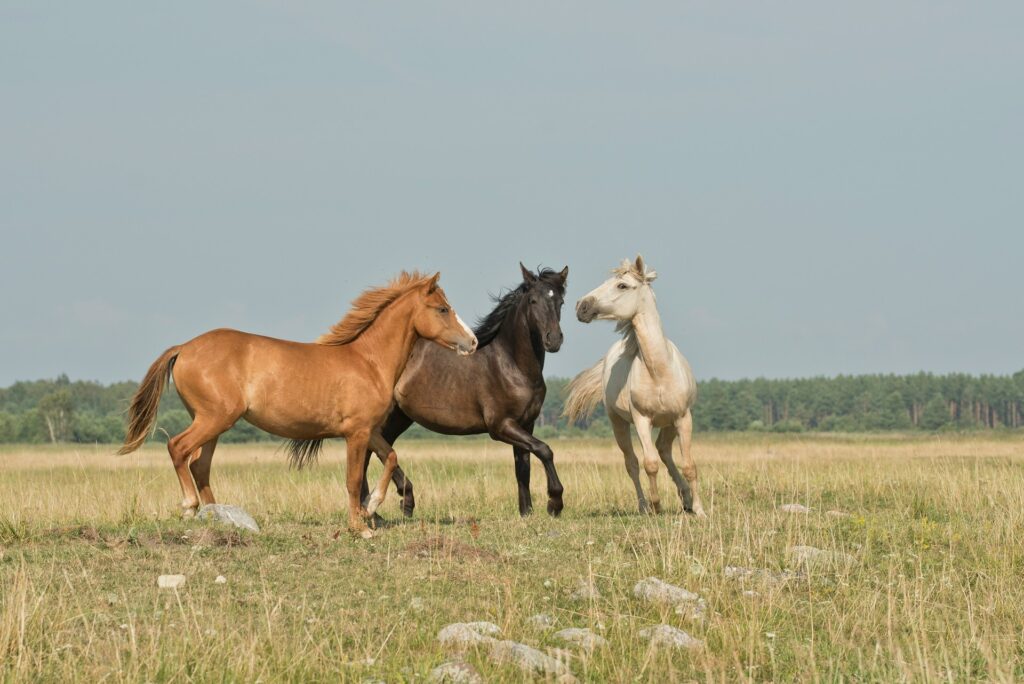
Top Tips For Ensuring Your Horse’s Happiness
Ensuring the happiness of your horse is akin to nurturing a friendship; it requires attention, understanding, and a dash of intuition. Here are some top tips to keep your equine companion in the highest spirits:
Optimal Nutrition
Just like us, horses need a balanced diet to be at their best. High-quality forage should form the basis of their meals, supplemented by grains or concentrates if necessary. Always provide plenty of fresh, clean water and consider adding a mineral block to their diet. Tailor their nutrition to their age, workload, and health status, and you’ll have a horse that not only feels great but is also a picture of vitality.
Comfortable Tack
The right tack is essential for a comfortable horse. Saddles and bridles should be fitted to the individual horse, avoiding any pressure points that could cause discomfort or pain. Regular checks and adjustments are necessary, as a horse’s body can change with age, workload, and health. A well-fitting saddle and bridle not only prevent physical issues but also help your horse to understand your cues clearly, making for a happier ride.
High-quality leather bridles and saddles are best, offering durability, comfort, and ease of maintenance, while ensuring a perfect fit for the horse’s anatomy.
Regular Exercise
Exercise is crucial for a horse’s physical and mental health. It keeps their body strong and their mind stimulated. Ensure your horse gets a mix of activities, from structured training sessions to free play in a safe paddock. This variety helps prevent boredom and keeps your horse engaged with its environment and companions.
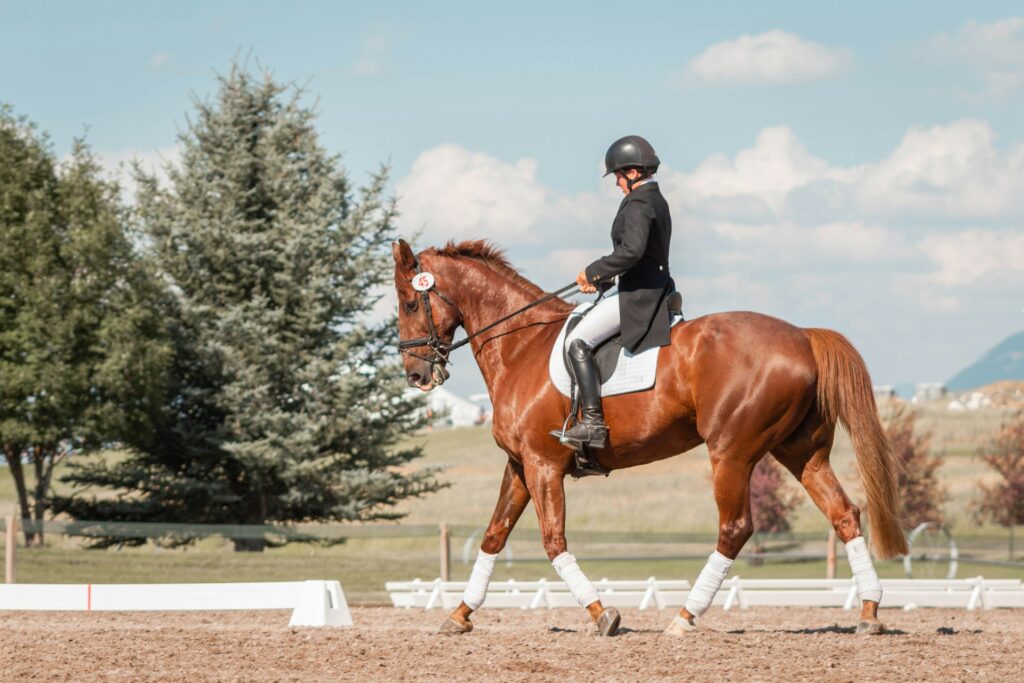
Mental Stimulation
Horses are intelligent animals and thrive on mental challenges. Incorporate training exercises that encourage them to think, such as trail obstacles or gentle clicker training. Toys and treat-dispensing balls can also provide entertainment and prevent boredom in the stable.
Social Interaction
Allow your horse plenty of time to socialise with other horses. This could mean turnout time in a shared paddock or simply ensuring they can see and communicate with other horses when stabled. Social bonds are crucial for a horse’s emotional well-being.
Preventative Health Care
Regular visits from the vet, farrier, and dentist are non-negotiable for a happy horse. Preventative care can catch potential issues before they become problems, ensuring your horse stays in top condition.
Rest & Recovery
Just as important as exercise, rest allows your horse’s body and mind to recover. Ensure they have a comfortable, clean, and safe place to rest, with adequate shelter from the elements.
Positive Reinforcement
Use positive reinforcement to build a trusting relationship. Reward good behaviour with treats, pats, or kind words. This not only reinforces the behaviour but also strengthens the bond between you and your horse.
The Bottom Line
Understanding if your horse is truly happy is a nuanced art that requires patience, observation, and a deep connection with your animal. It’s about recognising the subtle interplay between physical health, mental well-being, and the environment. By ensuring your horse’s needs are met and that it lives a balanced life with proper care, social interaction, and a harmonious work-rest ratio, you can foster a state of true happiness. And when your horse is happy, it’s a joy that is reflected in every stride, nuzzle, and neigh—a testament to the special bond you share.





